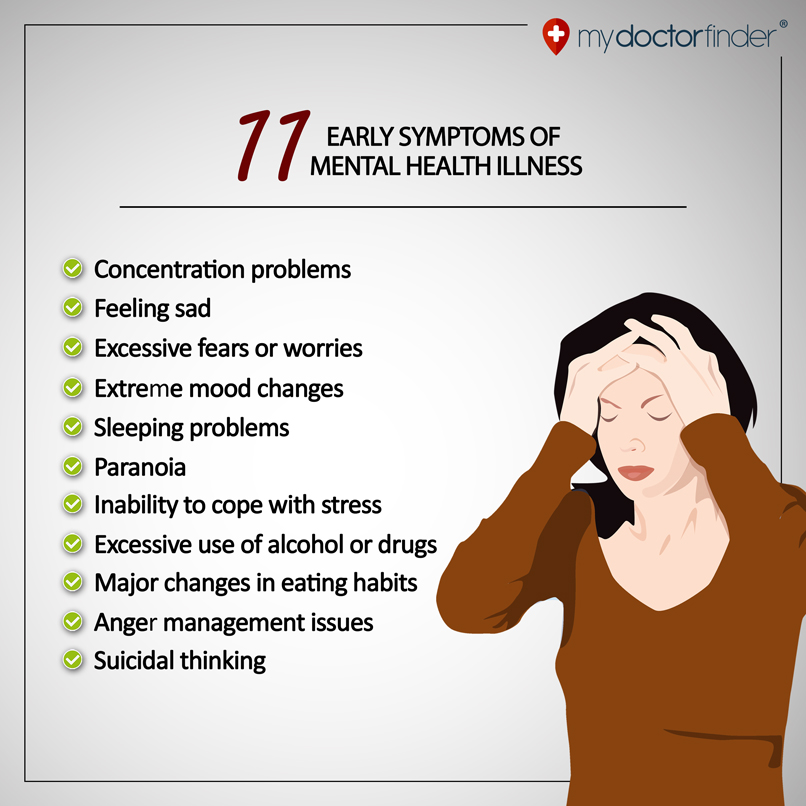Ocd and bad dreams
Will OCD Make You Have Nightmares? A Brief Guide to Sleep and OCD
Living with obsessive-compulsive disorder (OCD) means experiencing recurring intrusive thoughts, images or ideas and, as a result, developing compulsions in response to these obsessions. You can read all about the basics of OCD here.
OCD during the day and the nightAlthough the severity of these symptoms, and how they manifest, can vary widely from person to person, if you have OCD you’re likely to feel very overwhelmed or drained from your symptoms. OCD can take up hours of your days, even carrying over into the night, and causing issues with falling asleep, staying asleep or having bad nightmares related to your obsession.
Although research is still scarce on the subject and clinicians are constantly discovering more about what works and what doesn’t for different patients, sleep disturbance is absolutely a normal symptom of this disorder. It can be addressed as part of a holistic treatment to OCD.
It has been scientifically proven that OCD patients have more trouble sleeping than people who do not have OCD, whether it’s falling asleep or staying asleep undisturbed. A Swedish study from 2020 measured that obsessive-compulsive patients were almost seven times more likely to be diagnosed with or treated for insomnia too, compared to people without the disorder.
If you have OCD you may have a hard time getting to bed because you may be constantly getting up to check something or perform a compulsion. Once in bed, you may have a hard time drifting off because your mind is fixated on obsessions that are making you anxious, worried and stressed. Once asleep, you may be disturbed by nightmares or very vivid intrusive thoughts during the night, and these may leave you feeling uneasy or wake you up. Several studies have also shown that the more severe the OCD symptoms are during the day, the more severe the sleep disturbance and insomnia can be.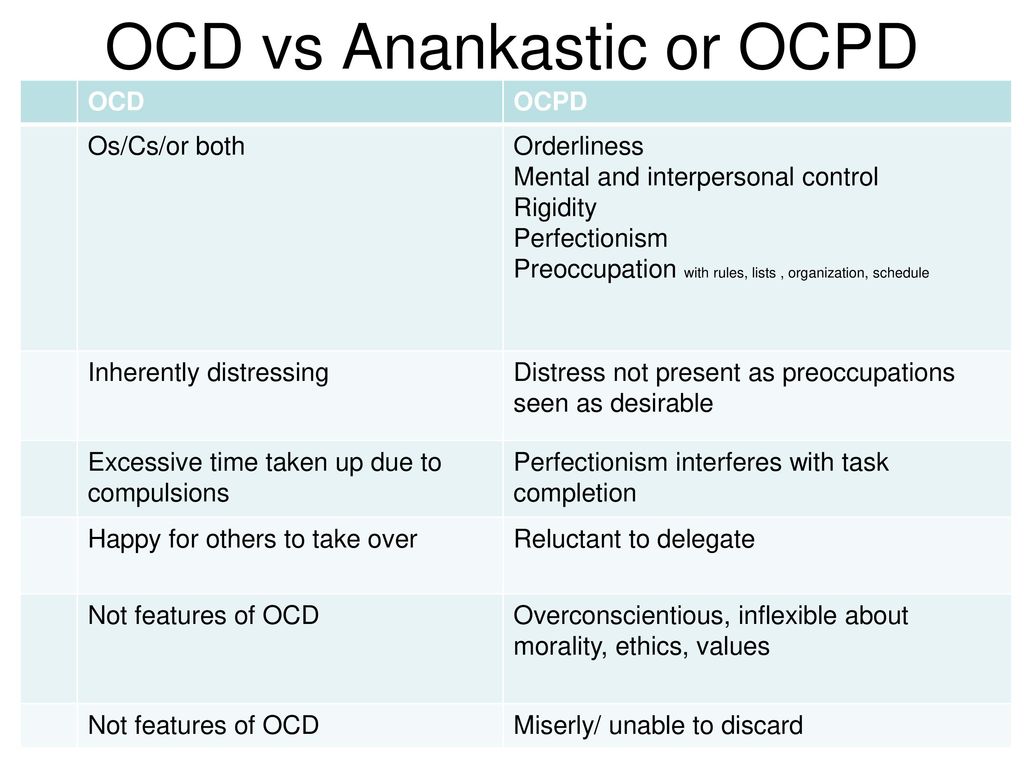
One study speculated that there might be a slight difference between the subtypes of OCD one can manifest and how much they affect your sleep — but this, like most aspects of this condition, can be highly subjective, and there isn’t a one-size-fits-all conclusion.
A significant element that may be affecting your sleep, according to researchers, is the presence of “sibling conditions” associated with OCD (you may sometimes hear them described as “comorbid”), such as depression and anxiety. In some cases there can be an independent relationship between depression, anxiety and sleep, and in some studies OCD patients who do not have comorbid diagnoses don’t have as much trouble sleeping as OCD patients who do. In other cases the obsessions alone could be causing your sleep troubles. So it’s likely a combination of these conditions put together that are affecting your sleep cycle.
So will OCD make you have nightmares? Maybe.Once again, clinical research on this area of OCD is still quite preliminary, and there isn’t much of a clean-cut answer. There just haven’t been enough studies with concrete results that can prove (or discredit!) relationships between OCD and nightmares, and clinicians are still mainly collecting clinical and anecdotal evidence about this topic.
There just haven’t been enough studies with concrete results that can prove (or discredit!) relationships between OCD and nightmares, and clinicians are still mainly collecting clinical and anecdotal evidence about this topic.
In some studies, patients with OCD have much worse nightmares than patients without it, and getting consistent treatment decreases the negative content of dreams over time. In others there isn’t that big of a difference and all patients report very anxious nightmares, and in others there is no link at all between OCD and nightmares. There may be some anecdotal stories of people having OCD related nightmares or doing compulsions during dreams, but there is no straightforward answer because everybody experiences OCD in slightly different ways.
Top tips to improve your sleep if you have OCDExtensive research suggests that getting little or bad sleep can have a negative effect on mental health in various ways, so there’s a possibility it could, as a result, have a negative effect on your OCD — especially during moments of heightened stress and anxiety. So, it’s important that you try to give yourself some solid snooze time every night by following a couple of best practices. You may also want to talk to your clinician about including sleep therapy into your holistic OCD therapy journey to enhance your treatment. Here are a couple of everyday tips you can try out yourself, or read our full guide of tips here.
So, it’s important that you try to give yourself some solid snooze time every night by following a couple of best practices. You may also want to talk to your clinician about including sleep therapy into your holistic OCD therapy journey to enhance your treatment. Here are a couple of everyday tips you can try out yourself, or read our full guide of tips here.
- Create clear boundaries between an awake space and an asleep space: Try to limit time in bed to sleeping — not working, scrolling or doing anything else that might trigger unwanted thoughts. That way, when you get in bed there’s less stimulation that might take your mind into other directions, and the bed is just a place to sleep and relax.
- Develop a routine: Try to always go to bed at the same time every day, and wake up at the same time every day. It doesn’t need to be super early or super late; it’s most important that you try to create a pattern, routine and consistent cycle for you to find stability and comfort.

Telling your OCD therapist about your problems sleeping could also be really helpful in finding ways to include it into your ERP. But bear in mind that this will be a process. It will take a little time before you find something that works for you, and there might be a steep learning curve at the beginning.
If you are living with OCD and need help please consider letting NOCD hellp you. We offer affordable and effective ERP therapy to all users in the US and UK. Please schedule a free call with our Care Team to learn more.
Fear of Dreaming | NOCD
Possibly related to:
You’re ready to end your day and climb into bed. You think about everything you’ve done that day; the highs and lows. Before you realize it, your stream of consciousness is now governed by the inevitable brain activity that happens to us all. Maybe you’re falling out of a 100 story building from the 99th floor, but never hit the ground. Perhaps you’re running with the feeling that you’re being chased, but can never identify who or what you’re trying to escape.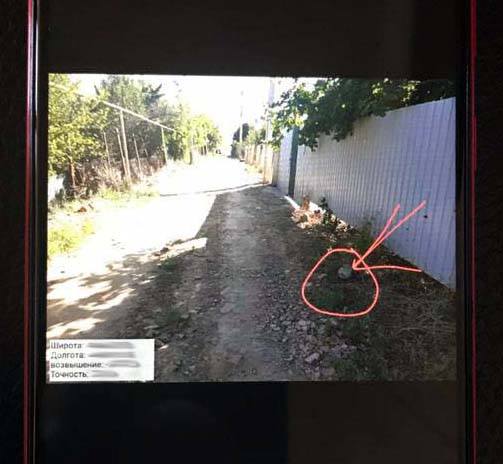 Some will recall their dreams once they awake, shrug, and move on throughout their day, while others may wake up and assign various meanings to what they remember and look for ways in which the dreams may be applicable to their lives. People with fear of dreaming OCD may experience obsessions related to their dreams—for people with OCD, common and sometimes unsettling dreams can trigger overwhelming OCD episodes, full of anxiety, rumination, and compulsive behaviors. Dream OCD can present in very distinct ways. Those with this OCD subtype may have vivid and memorable dreams about their deepest fears. Often, individuals with this subtype may fear that these dreams will come to pass in real life. Some who present with dream OCD may also believe that there is a correlation between their dreams and reality, especially if they have actually dreamed of a previous event that seemed to have manifested in the past. Dreams may even be related to other intrusive or bothersome thoughts in life, leaving people confused as to how they can get better. |
- What if my dreams actually materialize?
- What if my obsessions manifest in my dreams?
- What if my dreams trigger new obsessions?
- What if my dreams feel and seem real?
- What if my dreams are telling me I need to take a certain action in my life?
- What if I die in my dreams?
- What if I get stuck in a dream?
- What if I can never wake up from a dream?
- What if my dreams mean that I’m a bad person?
- What if I never stop having these bad dreams?
Common triggers
People with Dream OCD may be triggered by situations that make them feel anxious, uncomfortable, or fearful. Unsettling dreams can cause people to feel like they are out of control and uncertain of what will happen. Vivid dreams can momentarily feel real upon waking up, which can result in confusion about reality. A simple dream can also be the catalyst for intrusive thoughts that can be the cause of mental anguish.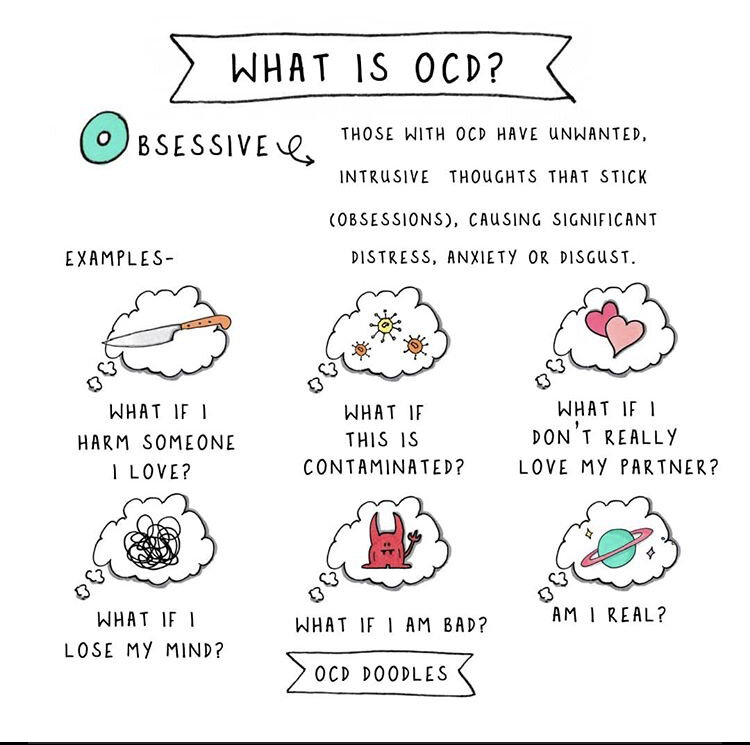
- Exposure to any information about symbolism in dreams
- Experiencing intrusive thoughts before going to sleep
- Watching a documentary about the spiritual explanation of dreams
- Verbally disclosing disturbing dreams
- Reading about precognitive dreams
- Watching movies centered around confusion between dreams and reality
- Having a disturbing or strange dream
- Getting little or poor sleep
It’s usually apparent that an individual is experiencing Dream OCD when they are experiencing consistent intrusive thoughts/obsessions about their dreams. Another important aspect of Dream OCD includes compulsions, which are behaviors an individual will perform in response to the anxiety that is produced by the intrusive thought or obsession.
Common compulsions
When people with Dream OCD experience intrusive thoughts, images, feelings, or urges that cause distress, they may engage in behaviors called compulsions, which may alleviate anxiety caused by the dream-related obsession, or may be perceived to prevent a feared outcome.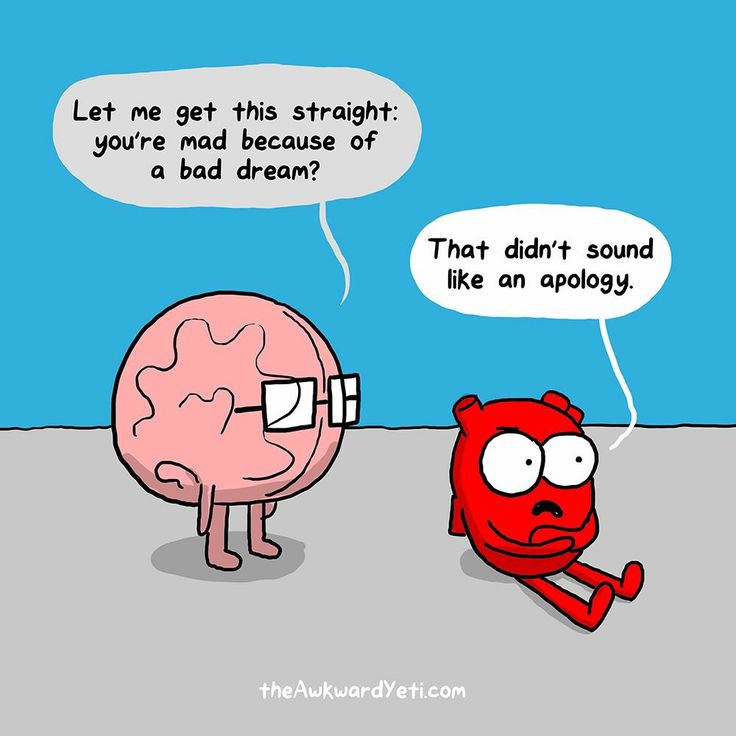 Unfortunately, these compulsions only temporarily relieve anxiety related to Dream OCD and, more often than not, perpetuate the OCD cycle, leading to more intrusive thoughts and increasing the intensity of the obsessions.
Unfortunately, these compulsions only temporarily relieve anxiety related to Dream OCD and, more often than not, perpetuate the OCD cycle, leading to more intrusive thoughts and increasing the intensity of the obsessions.
Compulsions performed mentally or physically by people with Dream OCD include:
- Delaying sleep (Avoidance)
- Researching scientific basis of dreams
- Rumination about what previous dreams mean and/or how they may relate to reality
- Mental review about most recent and old dreams
- Reassurance seeking from psychics or others thought to have knowledge about dreams
- Confession about an action or decision made in a dream
- Tracking dream content
- Substance use
How to treat fear of dreaming in OCD
Fear of dreaming can be debilitating for people who struggle with it, but it is highly treatable. By doing exposure and response prevention (ERP) therapy, it’s possible to effectively manage dream-related obsessions and intrusive thoughts.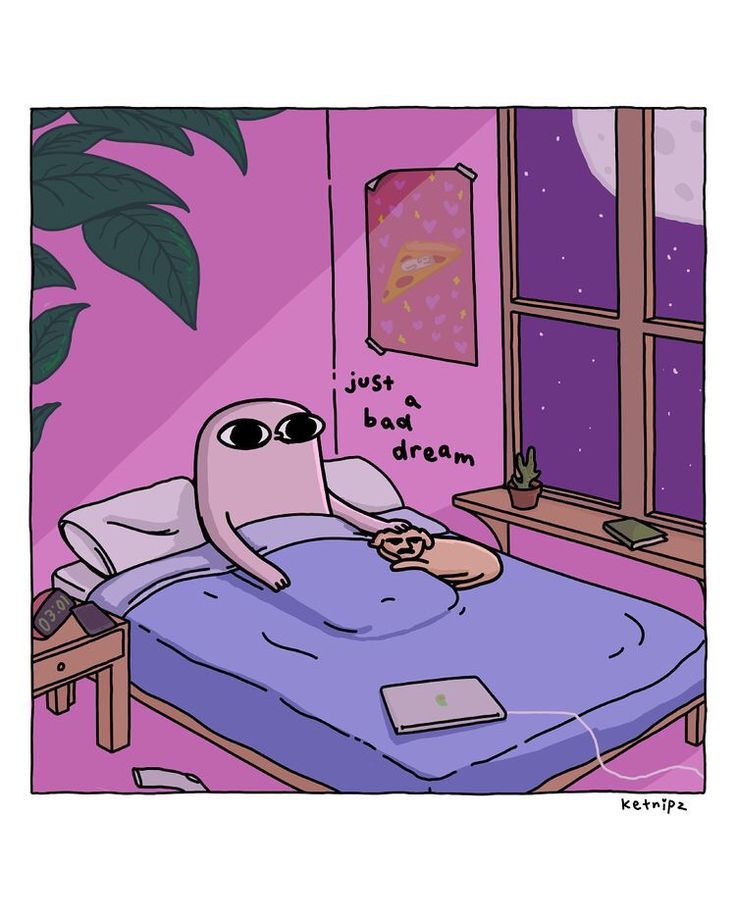 The overall objective of ERP is to develop exposures, situations designed to safely trigger anxiety related to obsessions, while refraining from compulsions like delaying sleep or confessing behaviors that occurred in a dream. The overall objective of ERP is to develop exposures, situations designed to safely trigger anxiety related to obsessions, while refraining from compulsions like delaying sleep or confessing behaviors that occurred in a dream. The first step to beginning ERP for dream OCD is developing a comprehensive hierarchy, which is essentially a treatment plan. The hierarchy will assist with identifying obsessions, compulsions, and triggers, while also providing a model for exposure development. It’s imperative that exposures target the fear associated with dreams and the stimuli that trigger these fears. For instance, if an individual is compulsively avoiding thinking about their dreams, a relevant ERP exercise could be dream journaling about the parts of a dream that are memorable and using the imagination to fill in and embellish parts there is no memory of, all without engaging in compulsions for temporary anxiety relief. |
If you’re struggling with OCD, you can schedule a free 15-minute call today with the NOCD care team to learn how a licensed therapist can help. At NOCD, all therapists specialize in OCD and receive ERP-specific training. ERP is most effective when the therapist conducting the treatment has experience with OCD and training in ERP.
We look forward to working with you.
Dreams that tell about a mental disorder
Do you believe in the significance of dreams? And that dreams can be more than just a bunch of disconnected pictures?
It's time to learn more about this. Here are the types of dreams that indicate a person has a mental disorder.
Dreams that occur in schizophrenia
Schizophrenia is a dangerous mental illness that causes serious and irreversible changes in the brain. Patients with schizophrenia often hear voices, see what others do not see, suffer from obsessive thoughts and do not adapt well in society.
Patients with schizophrenia often hear voices, see what others do not see, suffer from obsessive thoughts and do not adapt well in society.
You must have heard many times that one of the signs of schizophrenia is colored dreams. But it is not so. It’s just that schizophrenics see “pictures in a dream” more vivid, colors become richer, and emotions are stronger. And the longer a person is sick, the more noticeable these changes will be.
Here are some examples of dreams that patients with schizophrenia may have:
- the same recurring story throughout the night;
- dreams in which you can clearly see what colors all objects and details are painted in;
- dreams with violent or violent content;
- experiencing long forgotten feelings or emotions in a dream;
- people or objects moving backwards - for example, cars traveling in the opposite direction;
- non-existent worlds, heaven or hell;
- experiencing all the emotions or events that occur in a dream.

Scientists have repeatedly proven that after waking up, patients with schizophrenia do not immediately understand whether it was a dream or not, and for some time continue to exist “inside it”.
PTSD dreams
PTSD occurs as a result of traumatic situations. For example, fighting, physical violence or serious injury.
PTSD is characterized by symptoms such as short-term memory loss, increased anxiety, excitement, obsessive thoughts, hypervigilance, psychopathological re-experiencing (involuntary memories).
As a rule, people with PTSD often have nightmares associated with the very traumatic situation. However, in addition to them, they can also dream with other content:
- identical and meaningless images;
- dreams that end in the same place;
- dreams painted in one color only;
- transformation into animals or any objects;
- feeling like a person of the opposite sex - a woman or a man;
- escape from someone, identifying oneself with a criminal.

Dreams in obsessive-compulsive disorder
Obsessive-compulsive disorder is usually expressed in patients with an obsessive uncontrollable desire to wash their hands 10 times, check all appliances, locks, windows and perform other tiresome rituals (compulsions) before going out. help to get rid of disturbing thoughts (obsessions).
This obsessive state does not leave OCD patients even in their sleep, so they often have:
- emotional dreams in which they have to deal with tormenting feelings of shame or anger;
- struggle with any contrasting desires and some fear. Waking up, a person may feel guilty or very disappointed that he did not do what was required of him;
- dreams in which a person controls everything that happens or has some kind of magical power.
Dreams with Bipolar Disorder
Bipolar disorder is not only common among celebrities, ordinary people also suffer from it.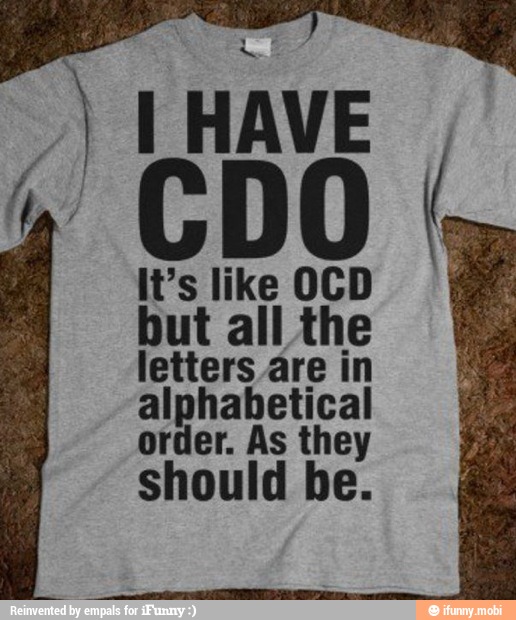 It manifests itself in alternating affective states (manic and depressive, and sometimes mixed), which entail a huge number of unpleasant symptoms.
It manifests itself in alternating affective states (manic and depressive, and sometimes mixed), which entail a huge number of unpleasant symptoms.
Dreams in people with bipolar disorder are just as vivid and intense as in those with schizophrenia. However, unlike schizophrenics, they perfectly remember their dreams and tell others in detail. And their dreams are as follows:
- dreams-series with a certain plot, can continue for several months or even years;
- colorful dreams, where a person experiences a feeling of indescribable happiness. For example, he can appear in a dream as some kind of deity, and all other people worship him;
Scientists explain this phenomenon by the fact that at such moments the depressive stage turns into a manic one.
Dreams during mental anesthesia
Mental anesthesia is considered as a symptom of a dissociative disorder and is manifested by a complete or partial lack of sensory sensitivity.
In other words, in this state people lose the ability to experience positive or negative emotions. And this happens not only during the period of wakefulness, but even in a dream.
The dreams of patients with mental anesthesia may be:
- in which they die several times;
- loss of one's own body or emotions, feeling that some "part" has been taken away from you;
- a clear realization that everything that happens in a dream is the fruit of a violent fantasy;
- the complete absence of any emotions in a dream, or vice versa, the experience of vivid emotions that a person has not experienced in real life for a long time;
- dreams in which close people and well-known places are perceived as something alien, completely new;
- dreams in which the patient allegedly sees the world through the eyes of others and is clearly aware of this.
Dreams of people with depression
Depression is perhaps the most common mental disorder, the presence of which is suspected by less than half of patients.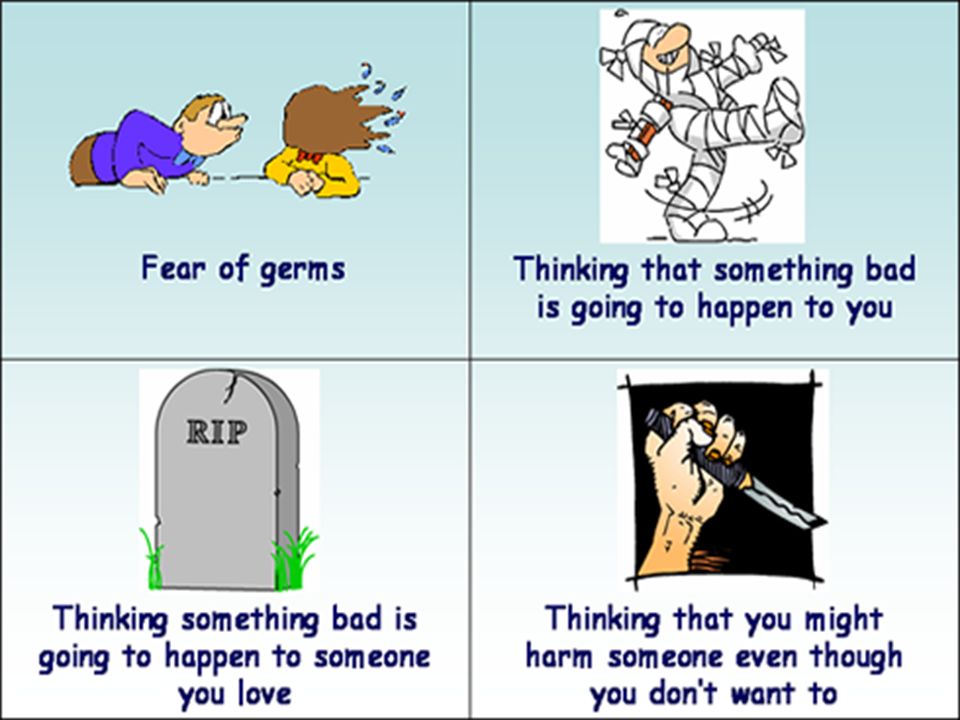 And no wonder, because people suffering from depression can drink, walk and have fun, and then at one moment decide that “everything is bad” and it makes no sense to live on.
And no wonder, because people suffering from depression can drink, walk and have fun, and then at one moment decide that “everything is bad” and it makes no sense to live on.
Only a specialist can diagnose depression, because its symptoms are often confused with ordinary boredom, sadness, low self-esteem and fatigue. However, if you often see at least some of the dreams listed below, you are much closer to depression than you think:
- gloomy places, abandoned houses, cemeteries, possibly own funerals;
- dead people in the form of the living;
- very realistic nightmares, after which a person cannot understand for some time whether this happened in reality or in a dream;
- several dreams connected by a certain "story line";
- dreams in which you seem to be watching yourself from the side.
In addition, people with depression quite often have a "dream within a dream." Let's decipher: you may dream that you are very tired and want to sleep, and when you "fall asleep", you see some kind of dream that you perceive as reality.
symptoms, how to get rid and treat
Olya Selivanova
struggles with obsessive-compulsive disorder
Author profile
Since childhood, I have suffered from obsessive thoughts.
When I was nine years old, I was reading a book, when suddenly the thought occurred to me: “If you don’t finish reading today, your mother will die.” The thought frightened me, I put down the book and cried, but I had to return to reading so that my mother would not die.
From that moment on, the frightening thoughts were different. I could suddenly change the route, because the thought came to my mind: “It is not safe to go further. Get around." There were thoughts to harm loved ones: push, hit, pour over. At such moments, I thought that an evil force had entered into me, and I began to count to myself, imagined how the numbers increased in order in size and knocked bad thoughts out of my head.
By the time I was twelve, it all came to naught, and as a teenager, I decided that it was just childish oddities. But seven years later, the obsessive thoughts returned, and the doctor at the neuropsychiatric dispensary diagnosed me with Obsessive-Compulsive Disorder. I'll tell you how I was treated and how I live now.
But seven years later, the obsessive thoughts returned, and the doctor at the neuropsychiatric dispensary diagnosed me with Obsessive-Compulsive Disorder. I'll tell you how I was treated and how I live now.
Go see a doctor
Our articles are written with love for evidence-based medicine. We refer to authoritative sources and go to doctors with a good reputation for comments. But remember: the responsibility for your health lies with you and your doctor. We don't write prescriptions, we make recommendations. Relying on our point of view or not is up to you.
What is obsessive-compulsive disorder
Obsessive-compulsive disorder is a mental illness in which a person has obsessive thoughts and compulsive actions.
What is Obsessive-Compulsive Disorder - Mayo Clinic
Obsessive thoughts - obsessions - usually revolve around certain topics: fear of harming yourself and others, fear of germs and toxic substances, the need to organize everything.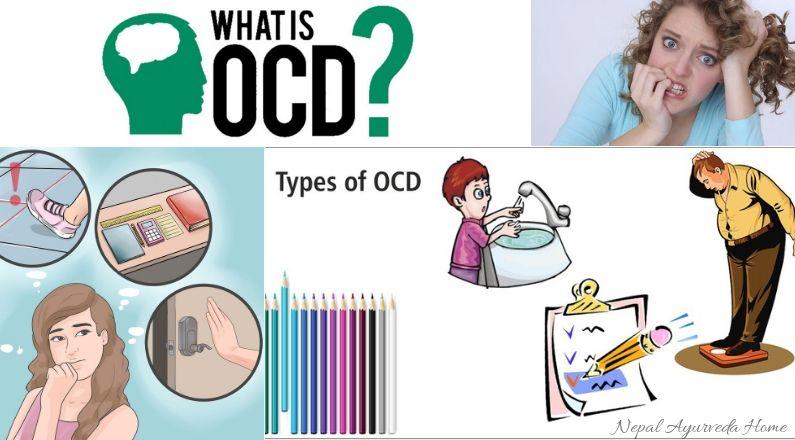 They appear suddenly or are provoked by external circumstances, such as a sharp object or the word "last".
They appear suddenly or are provoked by external circumstances, such as a sharp object or the word "last".
Intrusive thoughts cannot be ignored, they cause anxiety or disgust. In response to them, a person has compulsions - a strong desire to perform certain actions that, according to his feelings, will get rid of such thoughts. Compulsions are difficult to resist: the anxiety will grow until the person gives up.
For example, the obsessive thought that a person will become infected after touching a doorknob will provoke compulsive actions - repeated washing of hands, sometimes for several hours in a row.
/shizofreniya/
How much does it cost to support a relative with a mental disorder
I try not to touch doorknobs in public places and always make sure the door is closed. Do I have OCD?
Sergey Divisenko
psychotherapist
If a person’s condition does not interfere with himself or others, then everything is in order, if it interferes, a disorder can be suspected.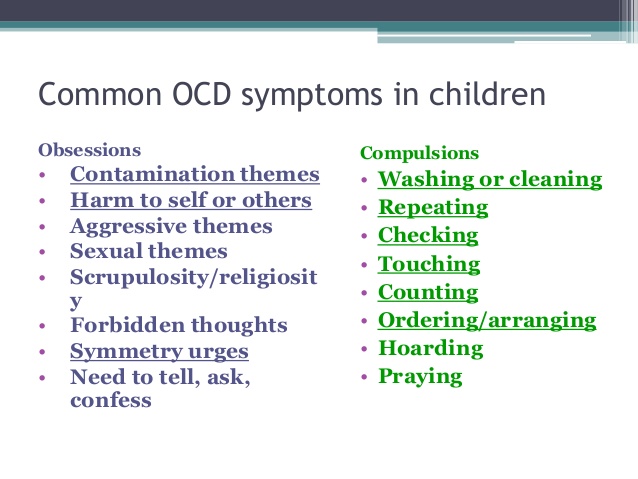 In the case of checking the door, one can say that checking if the door is closed once is not a problem, rechecking the door several times in a row and doing it systematically is already a problem.
In the case of checking the door, one can say that checking if the door is closed once is not a problem, rechecking the door several times in a row and doing it systematically is already a problem.
To understand whether or not there is OCD, the doctor pays attention to how often the patient has obsessive thoughts and compulsive actions and how they affect his life. If symptoms occur more frequently in two weeks than in seven days and interfere with daily activities, it is probably OCD.
In this case, the symptoms should have the following characteristics:
- The person should evaluate them as his own thoughts and desires.
- There must be at least one thought or action that the person unsuccessfully resists.
- The thought of a person performing a compulsive action should not in itself be pleasant. The fact that an action will help reduce anxiety is not considered pleasant in this sense.
- Thoughts or actions must be repeated.

How obsessive-compulsive disorder is treated
OCD is considered a lifelong disorder, but remission can be achieved with treatment: to get rid of obsessive thoughts and compulsive actions for a long time or to reduce their number.
Medical treatment. The main drugs for the treatment of OCD are antidepressants of the SSRI group. They increase serotonin levels in the brain, making OCD symptoms less likely to occur.
Treatment options for OCD - NHS
Depending on the course of the disease and symptoms, along with antidepressants, the doctor may prescribe other drugs: tranquilizers, neuroleptics or mood stabilizers.
Cognitive behavioral therapy. This is a type of psychotherapy in which a person learns to control their emotional response to intrusive thoughts. As a result of therapy, obsessive thoughts cease to cause anxiety and compulsive actions.
Cognitive behavioral therapy - NHS
Order of the Ministry of Health of the Russian Federation of September 16, 2003 No.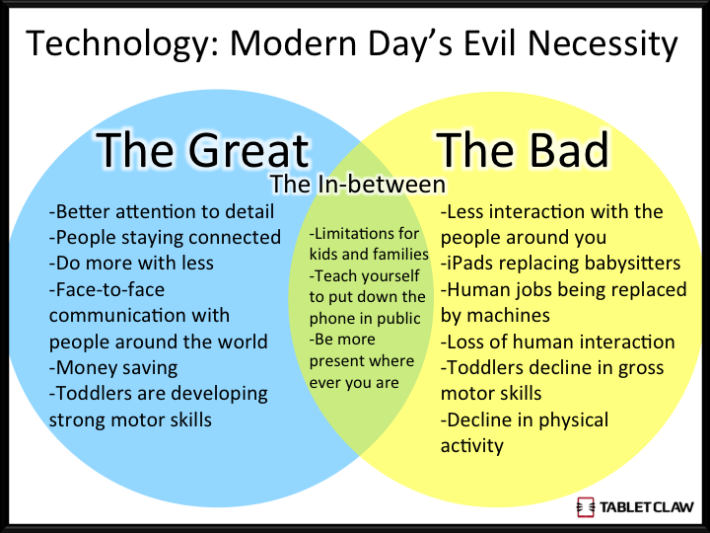 438 "On psychotherapeutic care"
438 "On psychotherapeutic care"
Psychiatrists, psychotherapists and psychologists are involved in the treatment of OCD in Russia. Psychiatrists prescribe prescription drugs. Psychotherapists and psychologists conduct psychotherapy sessions.
How I was diagnosed
At the age of 19, the development of the disease took a new turn. I was washing the kitchen knife and I had an obsessive thought that I was losing control and could cut myself and the guy who was nearby at that moment. So I began to avoid sharp objects, there was an irresistible desire to hide or throw them away.
Obsessive thoughts revolved around the topic of death: drinking nail polish remover, bleach, vinegar, throwing yourself under a vehicle or jumping out of a window. Because of this, I removed all dangerous liquids from the house and stayed away from open windows, highways and train station platforms. I didn’t sleep well at night, suffered from anxiety, considered myself crazy and dangerous, and began to move away from everyone.
I also doubted everything. Even if I just performed an action, it seemed to me that it was not completed. I opened the door to make sure that it had been closed before, closed it again, pulled the handle, asked those around me if the door was exactly closed. I could wake up at night and see if the stove was turned on, although before going to bed I went up to it and stared without blinking - so that it would crash into my memory that it was definitely turned off. My young man, seeing all this, insisted that we try to see a psychologist.
In Irkutsk, where I live, psychiatric care can be obtained free of charge at the regional psycho-neurological dispensary. I turned to the psychotherapeutic department of the dispensary for a consultation with a psychologist. At the reception, they brought me a card and said that there was no appointment with a psychologist for the next few days, but I could get to a psychiatrist: there are fewer people who want to see him.
/spravka/
How to get a certificate from the PND
At the appointment with the psychiatrist, I told about what was happening to me. The doctor was not surprised and said that it was an obsessive-compulsive disorder. It was the first time I heard my diagnosis, but I didn't believe it. On the Internet, I came across information that OCD is only pedantry, handwashing, fear of germs and perfectionism, and not the creepy things that come to my mind. The psychiatrist said that OCD was treated with antidepressants and offered to write a prescription, but I refused treatment because I thought they were serious drugs that would do more harm than help.
The doctor was not surprised and said that it was an obsessive-compulsive disorder. It was the first time I heard my diagnosis, but I didn't believe it. On the Internet, I came across information that OCD is only pedantry, handwashing, fear of germs and perfectionism, and not the creepy things that come to my mind. The psychiatrist said that OCD was treated with antidepressants and offered to write a prescription, but I refused treatment because I thought they were serious drugs that would do more harm than help.
How a visit to a neuropsychiatric dispensary with OCD will affect later life
Sergey Divisenko
psychotherapist
The patient could move freely, drive a car, use weapons and work.
With an OCD diagnosis, you can still work in any job, there are no legal barriers to this. With regard to cars and weapons, the situation has changed. In 2014 and 2015, government decrees appeared, according to which OCD became a contraindication for driving and owning weapons.
However, from a psychiatrist's point of view, a person diagnosed with OCD can drive a car and use a weapon. Doctors of the psycho-neurological dispensary still give a certificate about this, but they do it through a medical commission.
Treatment
First hospitalizationMy condition worsened, I tried to ignore obsessive thoughts. But the more I resisted them, the stronger they became. In addition, anger, irritability and constant fatigue appeared.
With new symptoms, I decided to see an endocrinologist, because I heard that this happens with problems with the thyroid gland. According to the results of ultrasound and hormone tests, the thyroid gland was in order. Then I made an appointment with a neurologist, but he also said that this was not his profile. Both doctors suggested that my constant fatigue, anger and irritability were symptoms of depression and advised me to seek psychiatric help.
Symptoms of clinical depression - NHS
I researched information about depression and realized that antidepressants could help, all I had to do was get a prescription. I came to the psychotherapeutic department again, but there was already another psychiatrist there. Since my condition worsened, instead of a prescription, he wrote out a referral for hospitalization in a day hospital. I had prejudices about a psychiatric hospital, so I did not want to visit the hospital. But there was no strength to argue with the psychiatrist.
I came to the psychotherapeutic department again, but there was already another psychiatrist there. Since my condition worsened, instead of a prescription, he wrote out a referral for hospitalization in a day hospital. I had prejudices about a psychiatric hospital, so I did not want to visit the hospital. But there was no strength to argue with the psychiatrist.
The next day I was already in the hospital. During the registration, the psychiatrist on duty asked what I was complaining about, measured the pressure and examined whether there were injuries on the body. It turned out to be difficult for me to talk about the symptoms: there was a feeling that they would not believe me, or vice versa, they would believe me so much that they would put me in a round-the-clock hospital. But everything was fine, the psychiatrist wrote down the data on the card, gave it to the orderly, and together with him sent me to the head.
The manager looked at the card, confirmed the diagnosis of OCD and depression, and prescribed treatment: an antidepressant, an antipsychotic, a mood stabilizer, tranquilizer tablets, and injections of B vitamins.
/guide/vitamins/
Vitamins: what foods contain and how to take supplements
The routine at the hospital was as follows: I arrived at eight in the morning, had breakfast and took the prescribed pills, took injections, dined and went home. Tablets were issued immediately for one day, but they could also be issued for two days, for example, before the weekend. Once after the injection, I went to an appointment with a clinical psychologist, he gave various tests and questionnaires that tested logic and intelligence.
It was possible to move freely and receive visitors in the day hospital. The only limitation that distinguished the hospital from a regular hospital was that there were no forks and knives in the dining room. Part of the drugs used to treat psychiatric diseases cause drowsiness. Therefore, in the hospital there are wards where you can sleep. For example, after drip
Part of the drugs used to treat psychiatric diseases cause drowsiness. Therefore, in the hospital there are wards where you can sleep. For example, after drip About three times a week I went to see a psychiatrist in the same hospital. I told her about my condition and asked questions. I thought that as soon as I start taking medication, my mood will rise and my anxiety will go away. But this did not happen, so it seemed that everything was in vain and the treatment had to be abandoned. The psychiatrist explained to me that not all drugs begin to act instantly, she assured me that we were on the right track and we had to wait. These conversations made it easier. In my case, antidepressants began to work only on the third month of admission, when I no longer visited the day hospital.
Treatment at the day hospital lasted a month. All medications, medical consultations and meals were free. I spent money only on the road to the hospital and back - 600 R by public transport for the whole time.
/bye-depression/
“It reminded me of a strict regime sanatorium”: how much I spent on treating depression
After treatment, the symptoms of depression remained, but obsessive thoughts began to bother me less often: I stopped being afraid of open windows and was able to ride the escalator. Treatment had to be continued on an outpatient basis. Before I was discharged, the psychiatrist said that she would transfer my data to the psychiatric department. Now I will need to come to the local psychiatrist for prescriptions for medicines, and turn to him if the condition worsens or questions arise.
During the treatment in the hospital, I doubted everything. Even in being sick. Not only the psychiatrist, but also relatives helped to cope. They noticed the changes, but my young man did not let me stop the treatmentTreatment
Visiting a local psychiatrist After I was discharged from the hospital, I came to the registration office of the psychiatric department with a passport and I was immediately sent to the district police officer. The doctor did not change the treatment and wrote out a prescription for the same medicines that were given in the day hospital. In the future, a referral to the district police officer was also not required. I just came to the appointment when I needed to update the prescription.
The doctor did not change the treatment and wrote out a prescription for the same medicines that were given in the day hospital. In the future, a referral to the district police officer was also not required. I just came to the appointment when I needed to update the prescription.
Government Decree of July 30, 1994 No. 890 with a list of categories of beneficiaries who are entitled to free medicines
District psychiatrists were different: some were polite, some were rude and rude. Using the brute force method, I found two normal specialists - when I made an appointment at the reception, I began to ask to be directed to them. Usually the registrar complied with my request.
Spent in six months of outpatient treatment — 8895 Р
| Preparation | Spending |
|---|---|
| Antidepressants | 5988 R |
| Normotimics | 2384 R |
| Antipsychotics | 419 R |
| Tranquilizers | 104 P |
Antidepressants
5988 R
Normotimics
2384 R
neuroleptics
419 R
Transquilizers
104 R
Free medicines for the treatment of OCD are provided to certain privileged categories of people.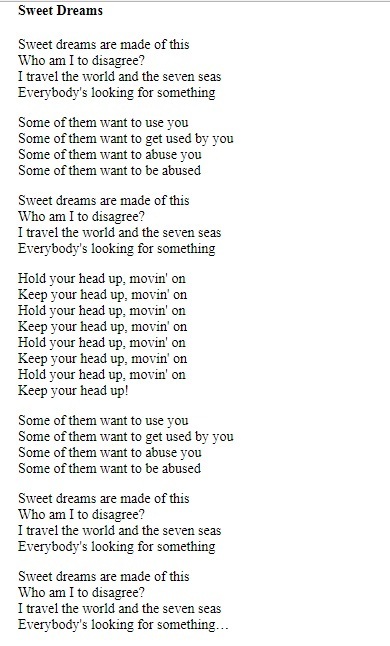 I’m not a beneficiary, so I bought everything with my own money. Pharmacies don’t require a passport, but they put the date of issue of the medicine on the back and don’t sell more than prescribed by prescription. For example, according to a prescription for three months, I was given only three packs of an antidepressant. When I wanted to buy one more to have a supply, the pharmacist refused
I’m not a beneficiary, so I bought everything with my own money. Pharmacies don’t require a passport, but they put the date of issue of the medicine on the back and don’t sell more than prescribed by prescription. For example, according to a prescription for three months, I was given only three packs of an antidepressant. When I wanted to buy one more to have a supply, the pharmacist refused Treatment
Second hospitalization and psychotherapyAfter six months of outpatient treatment, the local psychiatrist recommended to be treated again in the hospital. Antidepressants helped: my mood improved, I got energy and I wanted to live, but I felt a side effect from antipsychotics. I was terribly sleepy, my handwriting changed, it was difficult to write in class and generally follow the train of thought of the teacher. In addition, there were more intrusive thoughts.
In the day hospital, I was treated by the same psychiatrist as the first time. She adjusted the drug treatment so that I was not bothered by intrusive thoughts. She also said that a psychotherapist had appeared in the hospital and referred me to her for a consultation.
She also said that a psychotherapist had appeared in the hospital and referred me to her for a consultation.
Unlike the psychiatrist's consultations during the first hospitalization, we did not discuss drugs and their effects with the psychotherapist. We talked about what is happening to me and what other methods can be used to combat this, in addition to drugs. At the first appointment, I briefly talked about my lifestyle, obsessive thoughts, compulsive actions, and how I tried to resist them even before the treatment. Then the doctor explained to me what obsessive-compulsive disorder is and how it manifests itself, why my struggle only worsened the condition and led to depression.
/psychotherapy-search/
How to choose a psychotherapist
We agreed that I would try to keep the number of compulsive actions to a minimum, and I would cope with anxiety from intrusive thoughts with the help of techniques.
Speak key phrases.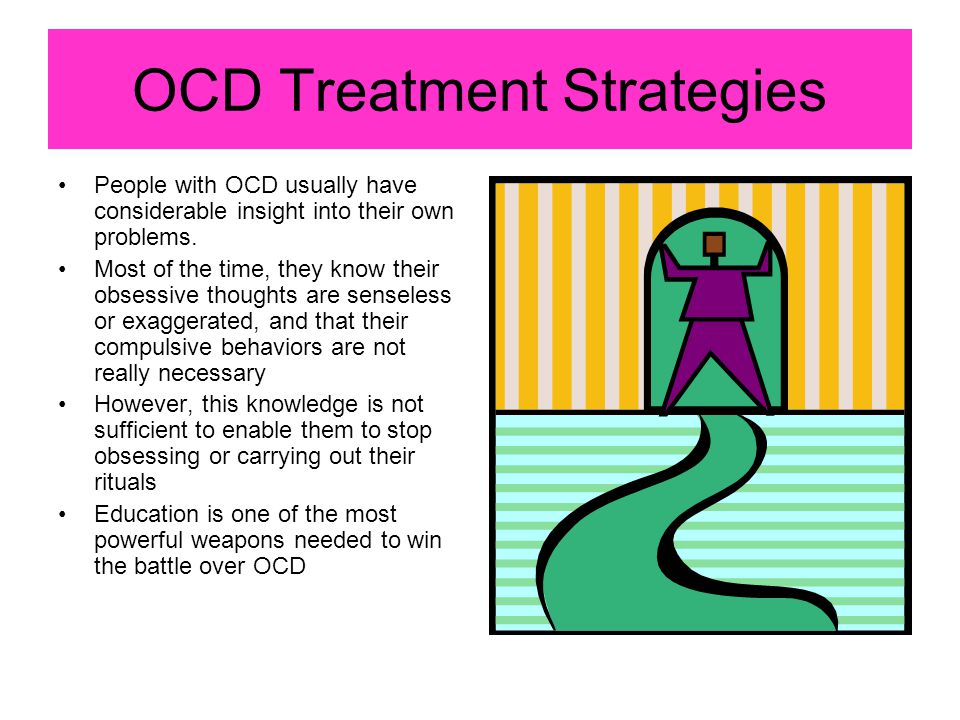 Thoughts in themselves mean nothing, they can come to mind automatically. We agreed that when I had an obsessive thought, I would simply tell myself that it was a manifestation of OCD. Here are the two phrases that I used: “This is just my thought that…”, “I know that this thought is a manifestation of OCD…” So gradually I stopped identifying myself with my thoughts and realized that thinking about the bad is does not mean to be a bad person.
Thoughts in themselves mean nothing, they can come to mind automatically. We agreed that when I had an obsessive thought, I would simply tell myself that it was a manifestation of OCD. Here are the two phrases that I used: “This is just my thought that…”, “I know that this thought is a manifestation of OCD…” So gradually I stopped identifying myself with my thoughts and realized that thinking about the bad is does not mean to be a bad person.
Separately, we discussed the issue of the materialization of thoughts. When terrible things are spinning in your head, and you hear from everywhere that thoughts are material, you get very worried. We discussed the fact that thoughts are intangible and you can’t invite trouble with them. This made it easier and the degree of emotions decreased.
Observe how the body reacts to anxiety. Every time I had anxiety from obsessive thoughts, I did not run away from it, but watched my body. I was shaking, my heartbeat increased, my breathing quickened, but I continued to live it.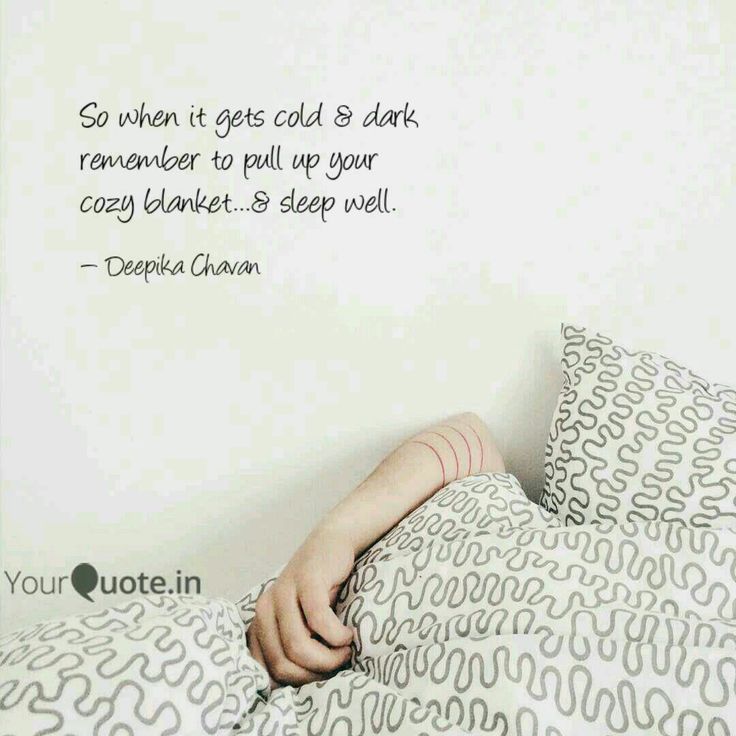 The psychotherapist said that I would not die from this. Yes, it is unpleasant and scary, but when you live emotions, you gradually learn to cope with them.
The psychotherapist said that I would not die from this. Yes, it is unpleasant and scary, but when you live emotions, you gradually learn to cope with them.
Keep a diary. In the course of the sessions, I became convinced that I cannot control the thoughts themselves - it is impossible, but I can control the reaction to them. So I started keeping a diary.
/psychotherapy/
How psychotherapy works
It was necessary to take notes according to the formula: A - situation, B - my thoughts, C - my emotions. Using such records, it is easier to track the thoughts that cause negative emotions and work them out. For example, when I could not fall asleep for a long time, I began to think that something was going wrong, and this caused anxiety. Then I wrote down the whole situation in a diary and instead of negative thoughts I formulated new ones: "My sleep does not depend on my will, and this is normal." It helped to get rid of anxiety, stop trying to sleep and go about your business. About half an hour later I went to bed and fell asleep peacefully.
About half an hour later I went to bed and fell asleep peacefully.
| I also kept a mood diary. Before treatment, there was no point in monitoring the mood: it always turned out to be bad or indifferent | On antidepressants, I began to make entries in a diary every day and could track what affects my mood |
I also kept a mood diary. Before treatment, there was no point in monitoring the mood: it always turned out to be bad or indifferent. On antidepressants, I began to make entries in a diary every day and could track what affects my mood
In the day hospital, I was treated for a month and a half, during which time I had only five sessions with a psychotherapist.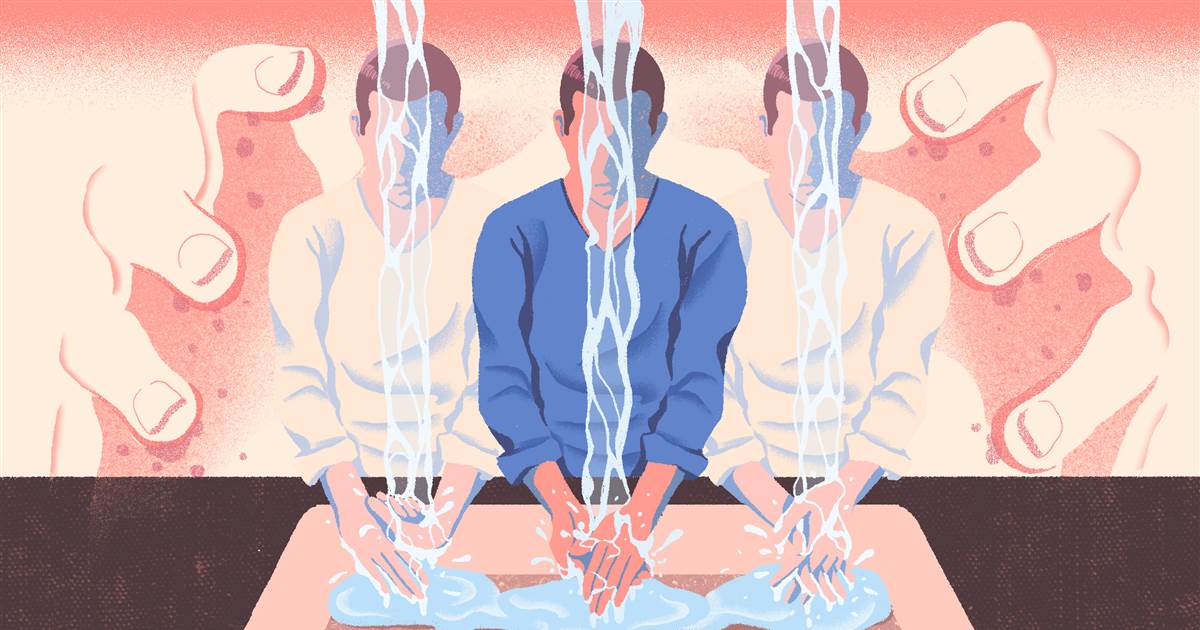 All sessions, meals and drugs, as in the first hospitalization, were free. The only thing I had to spend money on was the road to the hospital and back, as well as the original antidepressant instead of the analogue provided in the dispensary. The doctor recommended the original, it suited me better.
All sessions, meals and drugs, as in the first hospitalization, were free. The only thing I had to spend money on was the road to the hospital and back, as well as the original antidepressant instead of the analogue provided in the dispensary. The doctor recommended the original, it suited me better.
3202 Р
spent on medicines and transport for a month and a half of treatment in the hospital
When I was discharged, the doctor told me that I was in a stable condition, the treatment helped me. I myself felt it: the mood was consistently good, and I quickly coped with obsessive thoughts. I was canceled all the drugs, except for antidepressants, then I had to continue taking them, be observed by the district psychiatrist and monitor my condition.
Spent a month and a half of treatment in a hospital — 3202 Р
| Expenditures | Spending |
|---|---|
| Antidepressants | 2422 R |
| Transport | 780 Р |
Antidepressants
2422 R
Transport
780 R
How do I feel after treatment
I stopped taking antidepressants a year and a month after discharge. I spent another 14,640 R on them. Sometimes I have obsessive thoughts and compulsive actions, but I do not scold myself for this. I know that if I get upset, the symptoms will become more frequent. The psychiatrist warned me that OCD symptoms may appear periodically, but this is normal.
I spent another 14,640 R on them. Sometimes I have obsessive thoughts and compulsive actions, but I do not scold myself for this. I know that if I get upset, the symptoms will become more frequent. The psychiatrist warned me that OCD symptoms may appear periodically, but this is normal.
14,640 R
spent on antidepressants for a year and one month
Coronavirus last spring was a test of strength for me. The condition worsened, compulsive actions resumed, I stopped leaving the house, I began to choke on the street, obsessive thoughts about death appeared. But I managed it on my own with the help of techniques taught to me by the therapist. I kept in my head the idea that if it worked then, it will work now.
Before treatment, it was difficult for me to talk about my disorder. And now I openly talk about it and I can even joke about random manifestations of OCD. Almost everyone in my circle knows that I was being treated for OCD and depression. They help me notice compulsive actions and stop in time, treat me with understanding when I ask obvious things just in case - for example, did I close the door.
They help me notice compulsive actions and stop in time, treat me with understanding when I ask obvious things just in case - for example, did I close the door.
How often do people with OCD need to take drugs for life
Sergey Divisenko
psychotherapist
With the help of treatment, you can achieve remission - for a long time to get rid of the symptoms of OCD or reduce their number. Remission can occur both against the background of taking medications, and without them, against the background of psychotherapy.
Approximately 80% of patients with OCD stop taking medication sooner or later.
How much does OCD treatment cost
In total, I treated OCD for one year and nine months. Of these, she was treated in a day hospital for two and a half months, and for a year and seven months - on an outpatient basis.
In the hospital, I only spent money on transport to and from the dispensary. Even during the second hospitalization, on the recommendation of the doctor, she bought antidepressants at the pharmacy and took them instead of those given in the hospital. The rest of the drugs, consultations and meals were free.
The rest of the drugs, consultations and meals were free.
6 useful services for finding a psychotherapist
Most of the expenses are medicines during outpatient treatment.
Spent on OCD treatment for 1 year and 9 months — 27,337 R
| Expenses | Spending |
|---|---|
| Antidepressants | 23 050 Р |
| Normotimics | 2384 R |
| Antipsychotics | 419 R |
| Tranquilizers | 104 P |
| Transport during hospitalization | 1380 Р |
Remember
- Obsessive Compulsive Disorder or OCD is a mental illness in which a person experiences obsessive thoughts and compulsive actions.
- OCD is considered a lifelong disorder, but remission can be achieved with the help of psychotherapy and drugs.
- OCD is treated in Russia by psychiatrists, psychotherapists and psychologists.
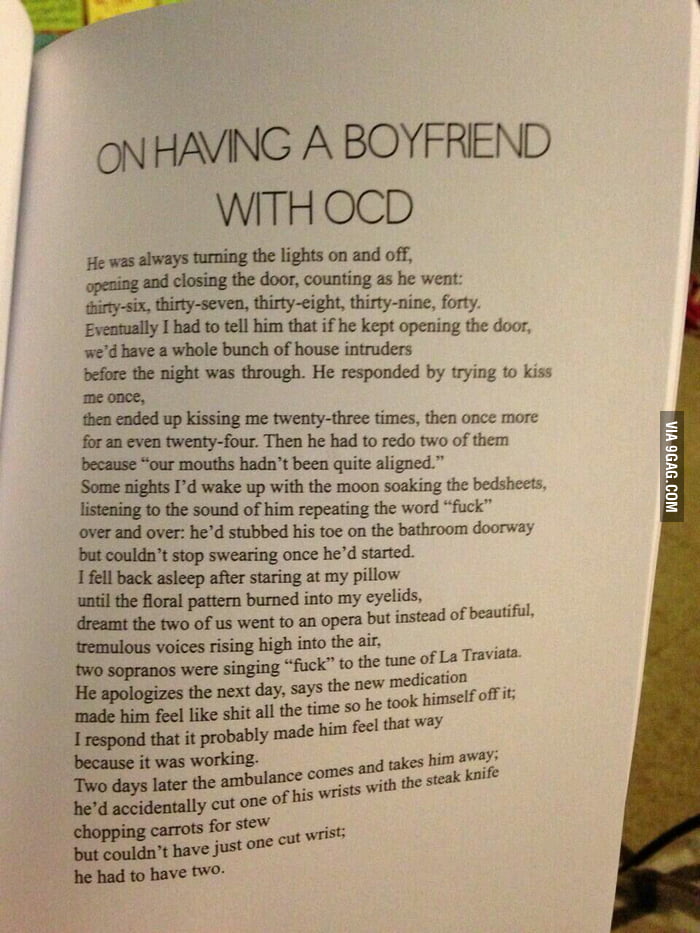

 In time, you can find yourself in control of your life and willing to take on challenging feelings like anxiety and uncertainty.
In time, you can find yourself in control of your life and willing to take on challenging feelings like anxiety and uncertainty.